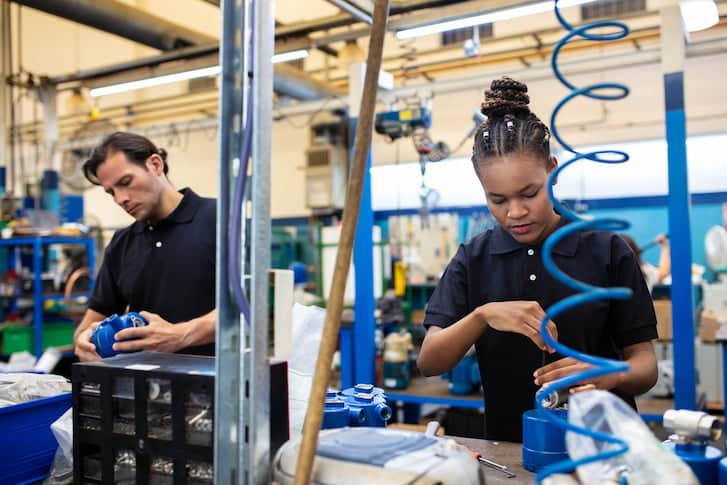An employee’s entitlements when returning to work after unpaid parental leave (UPPL) are often not given much thought until an employee is due to return.
CCIWA Employee relations adviser Jenny Thomas explains why employers must consult with employees about changes to circumstances.
CCIWA’s employee relations advice centre receive many calls on the issue from employers confused about what happens when circumstances change.
But being aware of your obligations as an employer is instrumental to making sure you are able to mitigate potential discrimination and general protections claims.
Section 84 of the Fair Work Act 2009 (Cth) (FW Act) states that upon ending UPPL, an employee is entitled to return to their pre-parental leave position. It also states that, if an employee’s position no longer exists, they must be offered an available job they are qualified and suited for, which is of similar status and pay to the pre‑parental leave position.
It is important to note that any reduction in hours or transfer to a ‘safe job’, to accommodate the employee’s pregnancy whilst working, does not constitute the employees pre-parental leave position.
Putting it simply, an employee returning to work after a period of UPPL, is entitled to, and has a right to, the position they had before commencing UPPL.
So what happens if my employee wants to return to work on a different basis?
An employee’s return to work can become complicated when an employee requests to return on a modified basis, otherwise known as a flexible working arrangement (FWA).
FWA’s can only be requested on specific grounds. An employee who has the caring responsibilities of a child (school age or younger), can for this reason request an FWA, as long as the employee has completed 12 months continuous service with the employer.
The request must be in writing, clearly outline the changes sought and the reason for the changes. The FWA requested will differ from employee to employee, as it will depend on individual circumstances, however, a FWA could include changes such as:
- changes to start and finish times
- patterns of work, such as working split shifts and job sharing
- or could include working from a different location, such as working from home.
Do I have to accept these new changes?
If your employee wants to change their working arrangements, they have a right to request changes, but they do not have a unilateral right to be granted any changes.
Employers can refuse FWA requests if they have reasonable business grounds, as outlined in section 65(5A) of the FW Act. When determining if the FWA can be accommodated, employers need to consider:
- the cost associated with accommodating the FWA request
- whether changing other employees’ arrangements or employment of a new employee would be practical in the circumstances
- what effect the requested arrangements would be on productivity, efficiency and customer service.
Your employee can be directed to return to their pre-parental leave position if you refuse the FWA request on reasonable business grounds. A refusal must outline the reasons why the FWA cannot be accommodated, including the reasonable business grounds for which the employer made their decision.
The refusal must be in writing and must be given to the employee no later than 21 days after receiving the request from the employee.
Employers should also be aware of any additional requirements under a modern award, enterprise agreement, contract of employment, or policy that provides FWA entitlements more beneficial than the FW Act.
►If you are unsure what award your employees are covered by, you can contact CCIWA’s Employee Relations Advice Centre on 9365 7660 or [email protected].






